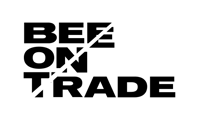Imported alcoholic beverages fall under the rulings of the Alcohol and Tobacco Tax and Trade Bureau (TTB), the Federal Food and Drug Administration (FDA), and the Customs and Border Protection Agency (CBP)
The Need for Special TTB Permits
If you want to import alcoholic beverages into the United States, you will need to obtain special permits from the Alcohol and Tobacco Tax and Trade Bureau (TTB).
You can apply for these permits online or by filling out a form and sending it to the department. The process can take around 6 weeks to complete.
Labels
As a business planning to sell alcohol, you are required to comply with federal labeling regulations and obtain a Certificate of Origin that states the country of origin and the age and alcohol content of the beverage.
You will also need to obtain a Certificate of Label Approval (COLA) for the product's label, which must be pre-approved by the TTB.
Certificate of Origin
The Customs and Border Protection agency uses the Certificate of Origin to determine various factors, including duty rates, duty preferences, violations of U.S. trade quotas, and sanctions against a specific country or product.
The Certificate of Origin will also influence the import duty you pay. If you are importing from a country that has a preferential trade agreement with the United States, such as Canada or Mexico, you may be eligible for preferential duty rates.
Wine Regulations Set By the TTB
Wine importing has special requirements, particularly if the wine was produced after December 31, 2004. These products may require certification to ensure that adequate winemaking procedures were used.
Depending on the country of origin, this certification may be a "Self-Certification" provided by the importer. It could also be a statement of adequate production from the alcohol-producing country's government. You may also need to provide proof of proper enological practices and comply with labeling requirements.
Taxes
Alcoholic beverages are subject to federal excise taxes, which are collected by the TTB. The rate of tax varies depending on the type of product and its alcohol content. You will need to pay these taxes when you import the product into the United States.
FDA Regulations
If you want to import alcoholic beverages into the United States, you will need to comply with the requirements of the Federal Food and Drug Administration (FDA). One of these requirements is that the foreign alcohol manufacturer must be registered with the FDA according to the FDA Food Facility Registration Regulation.
If the manufacturer is not already registered, you will need to apply for registration yourself. To save time, you may want to consider working with an alcohol manufacturer that is already registered with the FDA and simply notify the FDA when you are ready to import the product.
Restrictions
There are certain restrictions on the import of alcoholic beverages into the United States. For example, it is illegal to import absinthe, a type of high-alcohol liquor, into the country. There may also be limitations on the quantity of alcohol you can import, or restrictions on the countries from which you can import. You should familiarize yourself with these restrictions to ensure that you are complying with the law.
Customs Regulations
In addition to the requirements of the Alcohol and Tobacco Tax and Trade Bureau (TTB) and the Federal Food and Drug Administration, you will also need to comply with the regulations of the Customs and Border Protection (CBP) agency when importing alcoholic beverages into the United States.
Here are some of the customs regulations you will need to follow:
- Declare the alcoholic beverages to CBP at the time of importation. You will need to provide information about the product, including its country of origin, value, and any applicable tariff classification.
- Pay any applicable duties and taxes. Alcoholic beverages are subject to federal excise taxes, which are collected by the TTB. In addition, you may be required to pay regular customs duties, depending on the country of origin and the type of product.
- Present the required documentation. This may include the Certificate of Origin, the Certificate of Label Approval (COLA), and any other required permits or certifications.
- Comply with CBP regulations on labeling and packaging. The label on your alcoholic beverages must be approved by the TTB and must include certain information, such as the name of your company and the alcohol content of the product. The packaging must also meet CBP requirements.
By following these regulations, you can ensure that your importation of alcoholic beverages goes smoothly and avoid any issues with Customs.
Other Regulations
In addition to the TTB's requirements, you will also need to comply with the regulations of the Federal Food and Drug Administration and the Customs and Border Protection agency. This may include testing and approval of the product, as well as proper labeling and documentation.
It is important to carefully follow these regulations to avoid problems with Customs and ensure the smooth import of your alcoholic beverages.
After you have successfully imported your first shipment of alcoholic beverages, the process should become simpler for future shipments.
This is because you will already have obtained the necessary permits and paperwork, and you will be familiar with the process. Therefore, you will be prepared to handle all of your future shipments of alcoholic beverages.
